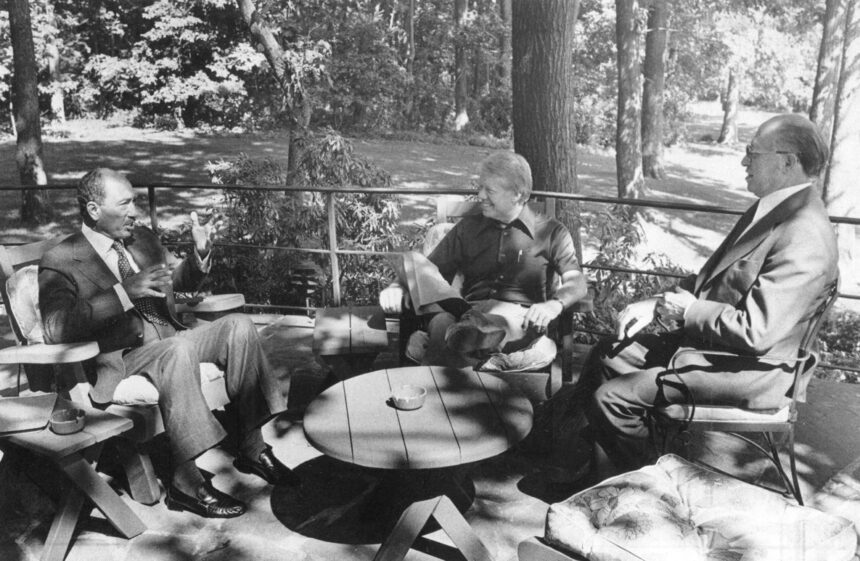Jimmy Carter was a president who defied expectations and left a lasting impact on American politics. His unlikely journey from a peanut farmer to the White House captured the hearts of a nation weary from the Vietnam War and the Watergate scandal. Carter’s down-to-earth demeanor and genuine concern for the average American resonated with voters, leading to his election as the 39th president of the United States.
However, Carter’s presidency was not without its challenges. Despite his best efforts, he faced criticism for his handling of the economy and foreign policy. The Iranian hostage crisis, in particular, tested his leadership and ultimately cost him re-election. Yet, Carter’s commitment to human rights, energy conservation, and diplomacy cannot be overlooked.
One of Carter’s most significant achievements was brokering the Camp David Accords between Israel and Egypt in 1978. This historic peace agreement showcased his diplomatic skills and commitment to resolving conflicts in the Middle East. Additionally, Carter made strides in promoting women’s rights by appointing several women to high-ranking positions in his administration.
Throughout his life, Carter remained true to his humble roots and values. From his upbringing in rural Georgia to his service in the Navy, he embodied the American dream. Despite facing setbacks and criticism, Carter continued to advocate for peace, justice, and equality.
In his post-presidency years, Carter dedicated himself to humanitarian work, including building houses with Habitat for Humanity and monitoring foreign elections. He also continued to speak out on political issues and offer his insights on the state of the nation.
While Carter’s presidency may not have been flawless, his commitment to honesty, integrity, and peacekeeping set him apart as a leader. As the longest-lived president in history, Carter’s legacy lives on through his contributions to public service and his unwavering dedication to making the world a better place.








